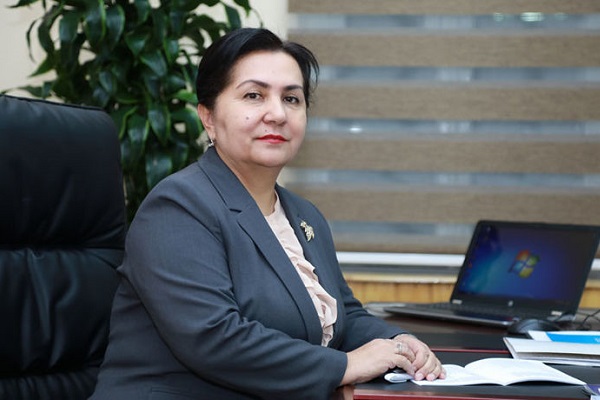
Tashkent, Uzbekistan (UzDaily.com) -- On 8 February 2019, a delegation of the Republic of Uzbekistan led by Deputy Prime Minister Tanzila Narbaeva met with representatives of the International Labor Organization (ILO) and the World Bank (WB), and also participated in the “round Table ”at the Center for Strategic and International Studies (CSIS), the press service of the Ministry of Foreign Affairs of Uzbekistan said.
Prospects for engaging with the ILO as part of the Third Party Monitoring Program and other potential mechanisms, aimed at completely eliminating systematic forced labor, were discussed at a meeting with the head of the ILO Department of Fundamental Principles and Labor Rights Beata Andres, director of the organization’s Washington office Kevin Cassidy and senior adviser in Uzbekistan Jonas Astrup.
Recognizing the effectiveness of the clustering process as a whole to eradicate systematic forced labor across Uzbekistan, Beata Andres stressed the importance of preventing this problem from moving into the private business, which is primarily interested in increasing profits and reducing production costs. Similar, in her opinion, was observed in many countries that solved the problem of forced labor in the public sector.
Speaking about the prospects of interaction, the head of the ILO division noted the possibility of implementing projects and programs aimed at improving working conditions as a factor of productivity growth and competitiveness in global product supply chains.
In conclusion, an agreement was reached on development of a “Roadmap” of cooperation between Uzbekistan and the ILO and discussion of its details during the meeting in Tashkent in late February 2019.
During the meeting with representatives of the World Bank and IFC on gender programs and social development, the sides discussed issues of legal, economic and social protection of women, creating the necessary conditions for them to further enhance their role in society, develop their leadership potential and ensure their employment.
WB Director of Social Development Programs, Maninder Gill, said that he was impressed by how quickly Uzbekistan managed to radically change the situation with the use of forced labor. According to him, there is also a significant strengthening of the role of women in society in the country.
The representative of the World Bank proposed to consider the implementation of projects to strengthen the role of women in society through the prism of programs for integrated regional development. In this context, the importance of defining business projects with the participation of women, based on the development opportunities of a particular industry in a particular region, is noted. At the same time, in this model, in his opinion, the status of women should be supported not only as employees of companies, but also as owners of assets.
The head of the Gender Secretariat of IFC, Henriet Kolb, announced the possibility of funding projects related to childcare, creating conditions for the professional development of women, and supporting entrepreneurship among them. In this context, she proposed to consider the possibility of introducing in the country a system of gender equality certification among the company’s employees (“EDGE Gender Certification”), aimed at achieving gender balance among staff, as well as ensuring equal conditions for professional development.
An agreement was reached on enhancing cooperation with these international institutions on designated promising projects and continuing the dialogue at the 39th session of the Commission on the Status of Women, which will be held at UN Headquarters on 11-22 March.
The delegation also took part in a roundtable at the Washington-based Center for Strategic and International Studies on the prospects for further strengthening Uzbekistan’s cooperation with representatives of civil society in eradicating human rights issues in the country. The event was attended by the leadership and experts of CSIS, representatives of relevant US departments, international and human rights organizations.
The participants of the round table positively assessed the pace of transformation in Uzbekistan, as well as the determination of the government of the country to constructively discuss pressing issues of human rights and address concerns about the eradication of children’s and the prevention of forced labor in the country.